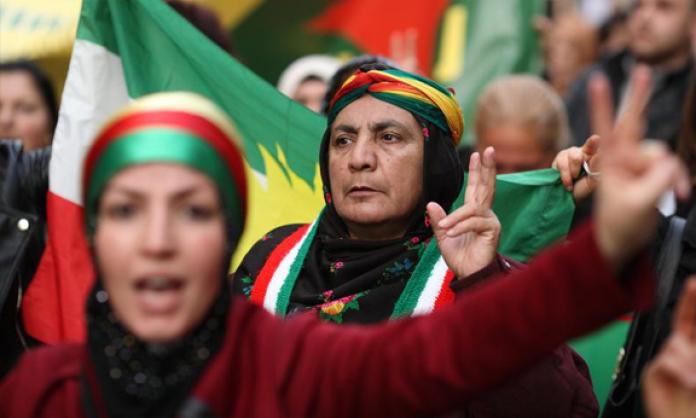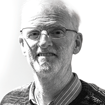At the end of World War One – which was supposedly fought to defend the rights of small nations – the “great powers” pledged to grant the Kurdish people a homeland. It was a lie. Nearly 100 years later, the Kurds are still denied the basic right of national self-determination.
Over all those years, the Kurds have been brutally repressed, exploited or used as a plaything by competing imperialist forces, above all by the US – which promised the Kurds independence if they aided the overthrow of Saddam Hussein’s regime – and the regional powers of Turkey, Iran and Iraq.
The size of the Kurdish population is widely disputed, but the most reliable estimate puts it at at least 35 million: about 16 to 17 million in Turkey, 7 to 8 million in Iran, 6 to 7 million in Iraq, about 2 million in Syria plus a sizeable diaspora scattered across the world.
Until recently in Turkey, even speaking Kurdish was a crime, as was the use of the letters x, q and w, which exist in the Kurdish alphabet but not the Turkish. The very existence of a Kurdish population was denied by the Turkish state. Every morning all school children sang: “I am Turkish. I am honest. I am diligent”.
People who misguidedly thought they were Kurdish were simply “mountain Turks”, according to the government. The slogan, “How happy is he who says I’m a Turk” is prominently displayed in the centre of Diyarbakir, the largest city in the predominately Kurdish area of south-eastern Turkey.
Pushing forward the revolution from below of the popular masses of Syria, both Arab and Kurd, is the only solution to sectarianism, racism and national chauvinism.
However, the Kurds did not meekly accept their oppression. In the 1920s and 1930s several Kurdish uprisings were brutally suppressed. Since then, a large part of the Turkish army has been stationed permanently in the Kurdish region, long the poorest party of the country, having been deliberately starved of funds for basic government services.
Tragically, secular Turkish nationalism has not simply been the province of the right but has also predominated on the Turkish left. This, combined with the entrenched Stalinist politics that championed cross-class alliances with supposedly progressive nationalist sections of the Turkish bourgeoisie, meant that until recent times there was little support on the Turkish left for Kurdish self-determination. The Turkish Stalinist left was much more concerned with denouncing “feudalism” and the supposed threat posed by US imperialism to Turkish independence than in fighting what should have been their main enemy: Turkish capitalism.
Rise of PKK
This left the large numbers of Kurdish youth who had been attracted to the left during the mass radicalisation of the late 1960s and early 1970s disillusioned. It opened up the space for the growth of the Kurdish guerrilla movement headed by the PKK (Kurdish Workers Party).
The PKK combined nationalist politics couched in Stalinist rhetoric with hardline Stalinist organisational methods – including the murder of internal dissidents. In 1984, the PKK carried out its first major military operation when it briefly seized control of two small Kurdish towns. Subsequently, it grew rapidly to be the unquestioned leadership of a powerful movement.
The Turkish state responded with brutal repression. Over the last 30 years, hundreds of thousands have died in the fighting or have been assassinated by wings of the Turkish deep state.
However, the repression simply led large numbers of Kurds, who had not been particularly sympathetic to the PKK, to rally around it. By the early 2000s, the PKK was frequently able to mobilise more than a million people on the streets of Diyarbakir, a city of fewer than 2 million people. It also built a powerful support and fundraising base amongst the large Kurdish diaspora in Western Europe and to a lesser extent Australia.
In 1999, Abdullah Ocalan, the PKK’s supreme leader, was captured after being expelled from Syria, where the PKK had previously been allowed to maintain military bases by the Assad regime, which was hostile to Turkey. From his prison cell, Ocalan agreed on and off to cease-fires and entered peace negotiations with the Turkish government.
He recognised that the PKK was incapable of militarily defeating the Turkish state. He even moved away from demanding the right for Kurdish national self-determination and instead called for a limited form of regional autonomy within the framework of the Turkish state.
Political shift
This was part of a broader political repositioning by the PKK. The old hardline Stalinist rhetoric was jettisoned, and Ocalan embraced the semi-anarchist style ideas of Murray Bookchin.
Bookchin advocated democratic confederalism – a form of radical municipalism – in which a network of self-governing local communities would replace the nation state. Ocalan also embraced elements of feminism. Women are now prominent in the PKK leadership, and many thousands of women were recruited to the PKK’s military forces.
Some sections of the anarchist movement and the broader Western left took all of this as good coin, became uncritical cheerleaders for the PKK and romanticised its role in the struggle. However, while socialists should defend the PKK from attacks by the Turkish state and oppose its proscription as a terrorist organisation by Western governments, we need to be clear that its nationalist politics offer no road forward for either Kurdish or broader human liberation.
That can be achieved only as part of a united revolutionary struggle involving the working class and popular masses of the whole region – Kurdish, Turkish, Arab and Iranian. But that united struggle will be possible only if the left in the oppressor national states champions the right of the Kurds to national self-determination
The peace negotiations between the PKK and the Turkish state were able to make some limited headway after the coming to office of the soft Islamist Justice and Development Party (AKP) in 2002. In part, this reflected the fact that the AKP was less committed to traditional Turkish republican nationalism than the more secular parties.
More significant was a recognition by sections of the Turkish ruling class that the extremely costly Kurdish struggle was not going away. Over the last decade, this has led to concessions – the legalisation of the Kurdish language, some limited education in schools in Kurdish, a Kurdish language channel on state television, the release of some political prisoners.
More recently, however, the peace process has broken down, with sharply stepped up repression and a resumption of the guerrilla struggle. The Turkish state fears that the consolidation of a Kurdish-controlled statelet in Syria will stimulate a similar development in Turkey.
Rojava
After the Assad regime’s army retreated from northern Syria in 2012, the armed forces associated with the Kurdish Democratic Union Party (PYD), which is affiliated with the PKK, took control of the Kurdish areas along the border with Turkey and set up autonomous regional governments, collectively known as Rojava.
The PKK talked of democracy and equality for all. Indeed, it claimed to be building socialism. A number of positive reforms were introduced and there was an effort to involve non-Kurdish residents in the government. Much emphasis was placed on the key role women were playing in controlling the communities and in the Kurdish militias.
On the other hand, the PKK is far from having broken from its Stalinist origins and remains a highly authoritarian organisation. It is based on strict military discipline, unquestioning loyalty to the supreme leader and support for a one-party state.
Flowing from this political approach, several hundred supporters of the Iraqi Kurdish Democratic Party were expelled from the PKK-controlled area. There have also been reports of ethnic cleansing of Arabs from the Kurdish-controlled areas. Talking about the establishment of Rojava the Syrian-Kurdish anarchist Shiar Neyo states:
“From the PYD’s point of view, this was a golden opportunity to impose its authority and expand its sphere of influence in the Kurdish areas in Syria. This political pragmatism and thirst for power are two important factors in understanding the party’s dealings with the regime, the revolution, the FSA, and even the Kurds themselves. They also help explain many phenomena that seem to bewilder some commentators and analysts, such as the suppression by PYD forces of independent activists and those critical of the party’s policies, in much the same vein as the Baathist regime did.
“By way of example, one can cite in this regard the Amuda massacre in July 2013, in which the People’s Protection Units (YPG) opened fire on unarmed demonstrators, or the closure of the new independent radio station Arta in February 2014, under the pretext that it was not ‘licensed’. The PYD’s forces have also assaulted other Kurdish political parties and arrested some of them under a variety of excuses; they have been controlling food and financial resources in the Kurdish areas and distributing them in an unjust manner on the basis of partisan favouritism.”
In 2014, the PKK-backed Kurdish forces, supported by elements of the Free Syrian Army, mounted a heroic and eventually successful defence of the ISIS-besieged city of Kobane. This was an important step forward because previously there had been armed clashes between the two. However, that success relied on active cooperation with the US military, which mounted repeated bombing operations against the ISIS forces.
The other problem is that many Arabs feel that the Kurdish forces have adopted an opportunistic approach to the Syrian revolution, preferring to consolidate their own patch rather than joining the broader struggle against Assad’s murderous regime. Indeed, YPG spokesperson Redure Khalil declared in a November 2013 interview: “Our strategy is to defend our land and our people. As long as the Syrian regime and armed groups don’t attack us, we don’t attack them”.
But in a revolutionary civil war, neutrality is not an option. And, unfortunately, there is significant evidence of collaboration at times between the YPD forces and Assad forces. Kurdish groups seeking to support the revolt to topple the Assad regime, such as the Freedom Party, Salahudeen Ayubi Kurdish Brigade, Akrad Front and the Komala Brigade, have been repressed by the PYD.
On the other hand, the Kurdish nationalists’ suspicions of Arab political forces are understandable given the long history of their oppression and the brutal Arabisation policies of the Baathist regime. Unfortunately, the various Arab nationalists and Islamists, in a similar fashion to their Turkish counterparts, have not taken a sympathetic approach to the legitimate demands of the Kurds for national self-determination.
Pushing forward the revolution from below of the popular masses of Syria, both Arab and Kurd, is the only solution to sectarianism, racism and national chauvinism. The struggle for the self-determination of the Kurdish people can be successful only as part of the broader revolutionary struggle in Syria.
A defeat of the Syrian revolutionary process would almost certainly put an end to the Rojava autonomous region and the hopes of the Kurdish people to decide their own future in the face of an array of reactionary forces – the Assad regime, Western and Russian imperialism, Arab and Turkish nationalist chauvinism and Islamic reactionary forces.
On the other hand, a solid alliance between the Kurdish movement for national self-determination and the progressive wing of the anti-Assad forces can only strengthen the chances of a democratic outcome of the heroic resistance of the Syrian people.











